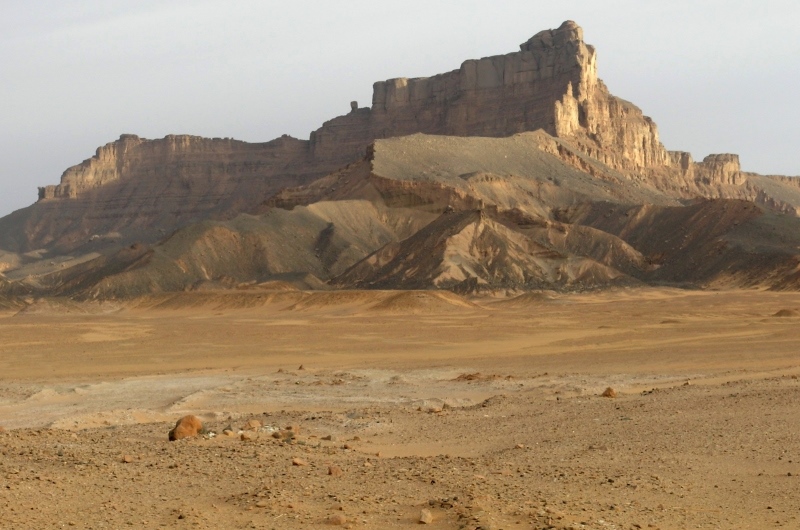Course Details
Home / Public Courses / Course Details
Petroleum Geochemistry (GEO67)
Description
This course starts with an introduction to petroleum geochemistry for the explorationist and underlines the uses of geochemical data. It covers origins of organic matter, organic matter preservation, fate and diagenesis, thermal maturity indicators, screening analysis, detailed analytical techniques, data interpretation, oil to oil and oil to source correlation, hydrocarbon gases and basin modelling basics. Case histories and example datasets will be discussed during the course.
A number of differing techniques are introduced and assessed in this course. Extensive use of data and examples from basins worldwide are employed.
This course also covers reservoir continuity assessment (both oil and gas, vertical and lateral), alteration of hydrocarbons within the reservoir, analysis of oil/gas/water within the reservoir, defining migration pathway and seal competency, and compartmentalisation of hydrocarbon accumulations.
Course Level: Foundation
Duration: 5 days
Instructor: James Armstrong
A number of differing techniques are introduced and assessed in this course. Extensive use of data and examples from basins worldwide are employed.
This course also covers reservoir continuity assessment (both oil and gas, vertical and lateral), alteration of hydrocarbons within the reservoir, analysis of oil/gas/water within the reservoir, defining migration pathway and seal competency, and compartmentalisation of hydrocarbon accumulations.
Course Level: Foundation
Duration: 5 days
Instructor: James Armstrong

Designed for you, if you are...
- A geologist, geophysicist or engineer working in development & production petroleum geology
The course assumes a basic knowledge of geological principles, e.g. sedimentology / structural geology. Familiarity with basic petroleum geochemistry is useful but not essential.
How we build your confidence
- The course is integrated with practical exercises and real case studies to enhance the understanding of petroleum geochemical analytical techniques, data acquisition and data interpretation.
- Extensive practical exercises and real case studies are conducted during the course to enhance the understanding of different techniques, their implementations and - importantly - some of the limitations of such data.
The benefits from attending
By the end of the course you will be able to:- Become familiar with the key analytical techniques of reservoir geochemistry
- Evaluate the processes related to preservation of organic matter in sedimentary environments
- Have an overview of characteristics of kerogen and petroleum and conversion of kerogen to hydrocarbons
- Learn how key geochemical data are generated
- Have a solid foundation for interpreting geochemical data from basic source rock characterisation to oil/oil and oil/source correlation
- Become familiar with some of the basic concepts of maturity modelling
- Integrate data with conceptual models to develop interpretation
- Through practical sessions learn how to handle different types of data and especially the limitations of each type of analyses and the benefits of integration of differing types of data
- Examine in detail how geochemical data can be used in recognising and assessing reservoir continuity, alteration with reservoir, migration pathways and compartmentalised accumulations
- Have an overview of other techniques not directly related to hydrocarbons (metal and water analyses)
Topics
Introduction to the Origin of Organic Matter- Review of differing types of organic matter and kerogen
- Origins of differing types of organic matter
- Diagenesis of organic matter and conversion to hydrocarbons via kerogen
- Basic chemistry of hydrocarbons - Most commonly used types of geochemical analysis
- Total Organic Carbon Analysis (TOC)
- Rock-Eval Pyrolysis Analysis
- Visual Kerogen Analysis - Practical Part: Data handling
- Simple interpretation of Total Organic Carbon (TOC), (Rock-Eval) Pyrolysis and Kerogen Typing data (Data Exercise, Mapping Exercise)
Thermal Maturity Determination
- Review of differing analytical techniques employed in the determination of thermal maturity
- Pyrolysis Tmax
- Vitrinite Reflectance
- Spore Colour Index
- Thermal Alteration Index
- Other methods of thermal maturity determination
- Introduction of the concept of basin modelling - Practical Part: Thermal Maturity Exercise
- Interpretation of datasets from wells with worldwide distribution
Calculation of Original Potential of Source Rocks
- Integration with basic analytical techniques
- Practical Part: Mapping Exercise
- Mapping of thermal maturity data
- Recalculation of original potential using initial TOC/Pyrolysis data
Advanced Analytical Techniques (1)
- Overview of advanced types of geochemical analyses including SARA, Gas Chromatography, GC-MS biomarkers analysis and Carbon Isotope determinations
- Practical Part: Gas Chromatogram Exercises
- Biodegradation of oil
- Gravity segregation
- Commingling
- Gas stripping and/or water washing
Advanced Analytical Techniques (2)
- With focus on Correlation, Migration, Connectivity and Compartmentalisation, how these aspects can be recognised and analysed using a variety of geochemical data
- GC-MS biomarkers
- CSIA
- Fluid Inclusion Analysis
- Carbon Isotopes - Practical Part: Appalachian Basin Exercises - Correlation
- Focus on gas chromatography and SARA data
- Looking for similarities and differences in oils
- Breaking out into families - principally gas chromatography and light hydrocarbon data
- Data from different locations with a more complex geochemical dataset - gas chromatography, SARA, light hydrocarbon data, carbon isotopes - Practical Part: Exercises - Migration Connectivity Compartmentalisation
Review of Non-Hydrocarbon Gases
- Hydrogen Sulphide (H2S), Carbon Dioxide (CO2), and Nitrogen (N2)
Metals in Oil
- Nickel (Ni), V, Hg
Water Analysis Salinity
- Total dissolved solids (TDS), Stiff and Piper Diagram Construction
Related Courses
© All rights reserved
HOT Engineering GmbH Tel: +43 3842 43 0 53-0 Fax +43 3842 43 0 53-1 hot@hoteng.com
